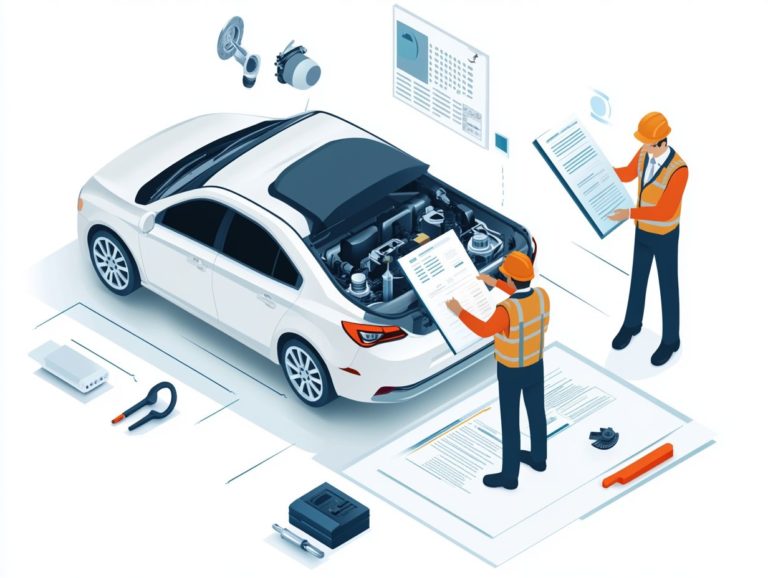The Role of Maintenance in Warranties
Warranties can save you money, but understanding maintenance is key! Let s dive into how taking care of your products can keep your warranty intact.
This article will break down the essential concepts of warranties and maintenance. We ll explore how your upkeep practices can influence warranty coverage and highlight the types of maintenance that are typically included.
With practical tips and insights on how to extend your warranty through diligent care, you’ll be well-equipped to navigate the often-confusing world of product protection.
Discover how to keep your items in prime condition and maximize the benefits of your warranties!
Contents
- Key Takeaways:
- Understanding Warranties and Maintenance
- The Importance of Maintenance in Warranties
- Types of Maintenance Covered by Warranties
- How to Properly Maintain Warrantied Items
- The Role of Maintenance in Extending Warranties
- Frequently Asked Questions
- What is the role of maintenance in warranties?
- Why is regular maintenance important for warranties?
- Can I perform maintenance on my own to keep my warranty valid?
- What happens if I fail to follow the maintenance requirements stated in the warranty?
- Can I purchase a warranty without any maintenance requirements?
- Is maintenance covered under the warranty?
Key Takeaways:
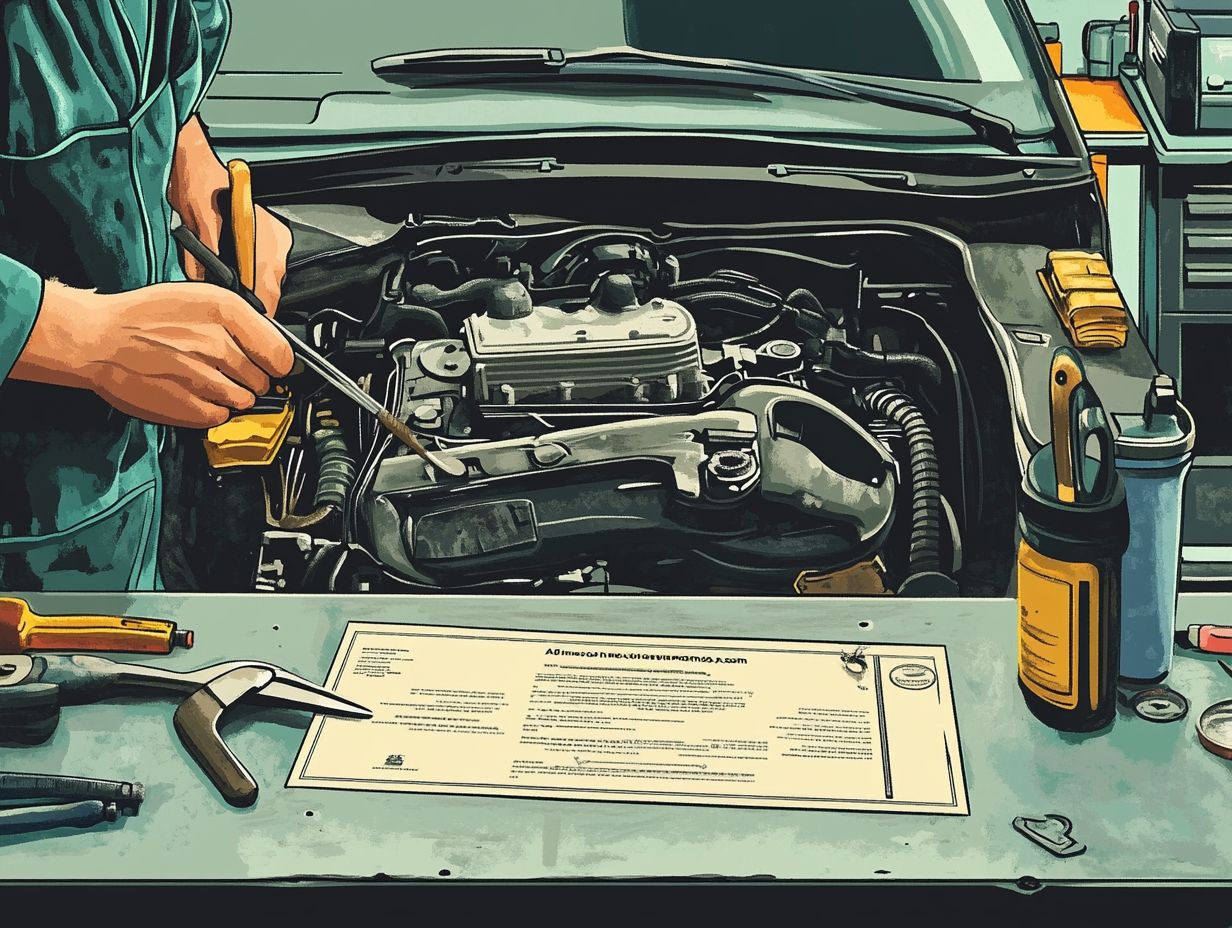
- Maintenance is a crucial factor in ensuring warranty coverage for purchased items.
- Proactive and proper maintenance can help extend the lifespan of warrantied items and avoid potential warranty claim denials.
- Understanding the types of maintenance covered by warranties and following best practices can save time and money in the long run.
Understanding Warranties and Maintenance
Understanding the relationship between warranties and maintenance is essential for ensuring the longevity of your equipment and compliance with warranty terms.
Warranties serve as a shield against defects, while a well-planned maintenance routine is key to sustaining equipment performance and preventing unexpected breakdowns.
Legal frameworks, like the Magnuson-Moss Warranty Act, shape this dynamic by outlining warranty requirements and compliance responsibilities.
To make the most of your warranty, follow maintenance guidelines closely and document all tracking. This ensures that every routine task and maintenance activity aligns with your warranty terms, safeguarding your investment and peace of mind.
Definitions and Differences
Warranties and maintenance contracts are interconnected concepts that play a crucial role in equipment management and consumer protection.
Warranties provide assurances about the quality and functionality of a product for a specific period. They offer legal recourse should any defects emerge.
In contrast, maintenance contracts detail your obligations for regular servicing, often extending beyond simple repairs.
Understanding these distinctions is essential for managing your equipment effectively. Grasping warranty terms helps you navigate the claims process with ease.
Being aware of your maintenance responsibilities helps you stick to service schedules, prolonging your equipment s life and keeping it running smoothly.
The Importance of Maintenance in Warranties
The significance of maintenance in upholding warranty compliance is paramount. A well-planned maintenance routine plays a crucial role in enhancing equipment reliability and lifespan.
Engaging in regular maintenance tasks, such as thorough equipment inspections and safety assessments, significantly reduces the likelihood of unforeseen breakdowns and minimizes repair expenses.
By diligently following maintenance schedules, you can guarantee that your essential equipment functions optimally. This maximizes the advantages of your warranty protection.
Don t wait! Regular maintenance can prevent costly repairs. Stay proactive! Your warranty and your wallet will thank you.
How Maintenance Affects Warranty Coverage
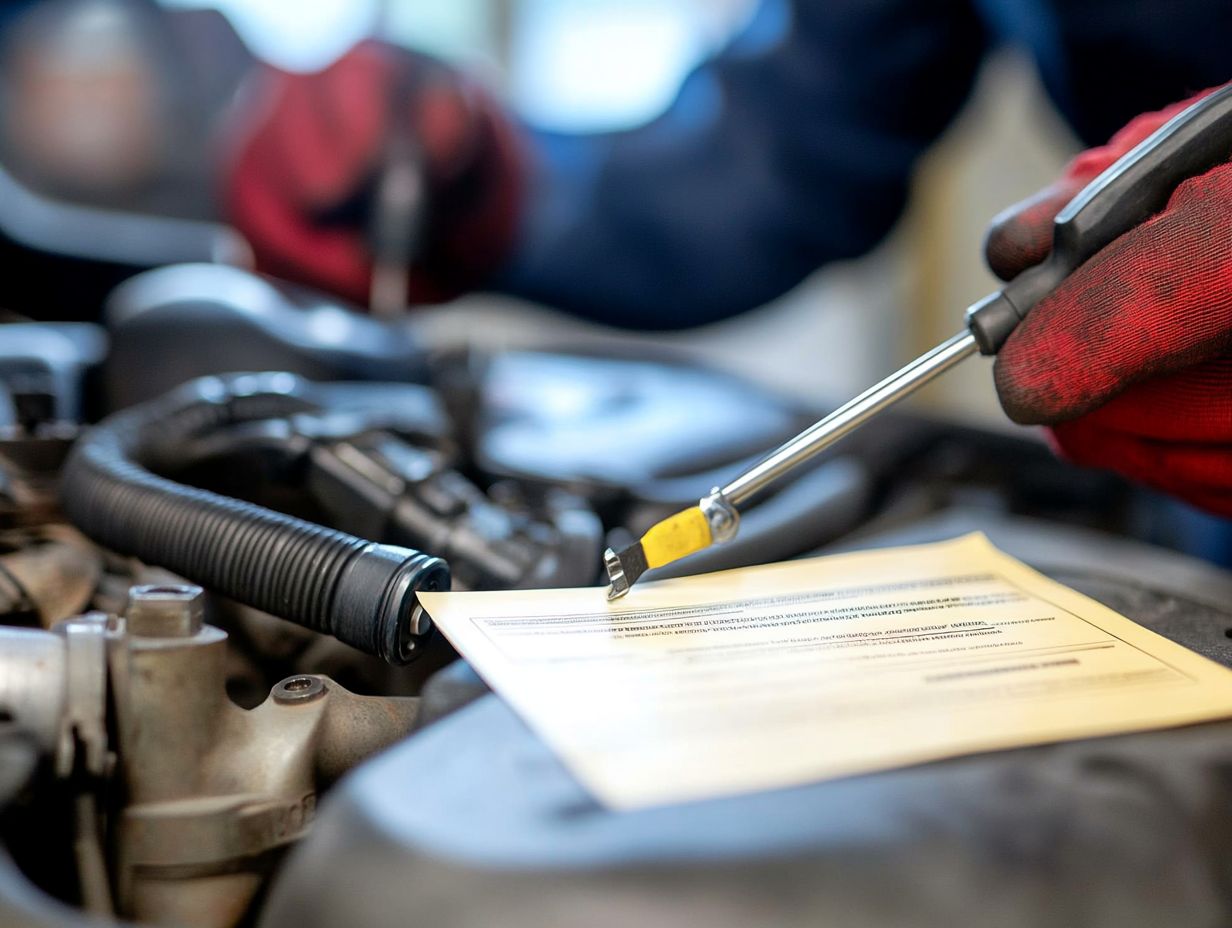
Maintenance profoundly influences your warranty coverage. It ensures that your equipment meets the specified requirements, protecting you from potential denial of warranty claims.
Engaging in regular maintenance activities, such as lubricating your machinery to reduce friction and testing equipment, is essential for preserving functionality and longevity. These practices boost operational efficiency and enable you to detect issues before they escalate into significant problems.
When maintenance is neglected, minor wear and tear may go unnoticed. This can lead to equipment failures that require expensive repairs or replacements. Neglecting necessary maintenance can result in voided warranties, as manufacturers typically require routine checks and services as part of their conditions.
This oversight not only forfeits the financial protection offered by a warranty but also risks incurring downtime that disrupts operations and adversely affects overall productivity.
Types of Maintenance Covered by Warranties
Warranties often include various maintenance types, providing vital protections for consumers and businesses. Typically, you’ll find scheduled maintenance, routine inspections, and equipment testing included in standard warranties. All of these play a crucial role in enhancing equipment longevity and reliability.
However, some exclusions may apply, making it essential to thoroughly understand warranty agreements to grasp what s covered and what isn t.
Common Inclusions and Exclusions
Warranty agreements often include provisions for scheduled maintenance tasks. They can also specify conditions that may void your coverage.
For example, warranties typically cover routine services like oil changes, filter replacements, and inspections essential tasks that help keep your equipment in optimal condition. However, if you neglect necessary upkeep or ignore warning signs, any resulting damage usually falls outside the warranty s protection. This distinction can significantly affect the longevity and reliability of your equipment.
Relying solely on the warranty can lead to unexpected costs if you breach outlined conditions. Therefore, understanding these terms is vital to ensuring your equipment s performance remains consistently high.
How to Properly Maintain Warrantied Items
To effectively maintain your warrantied items, create a comprehensive maintenance schedule that includes regular equipment inspections and safety checks.
Engaging qualified technicians for these routine tasks ensures compliance with warranty requirements and enhances your equipment’s performance.
Embracing best practices not only safeguards your warranty protection but also significantly extends the lifespan of your critical assets.
Tips and Best Practices
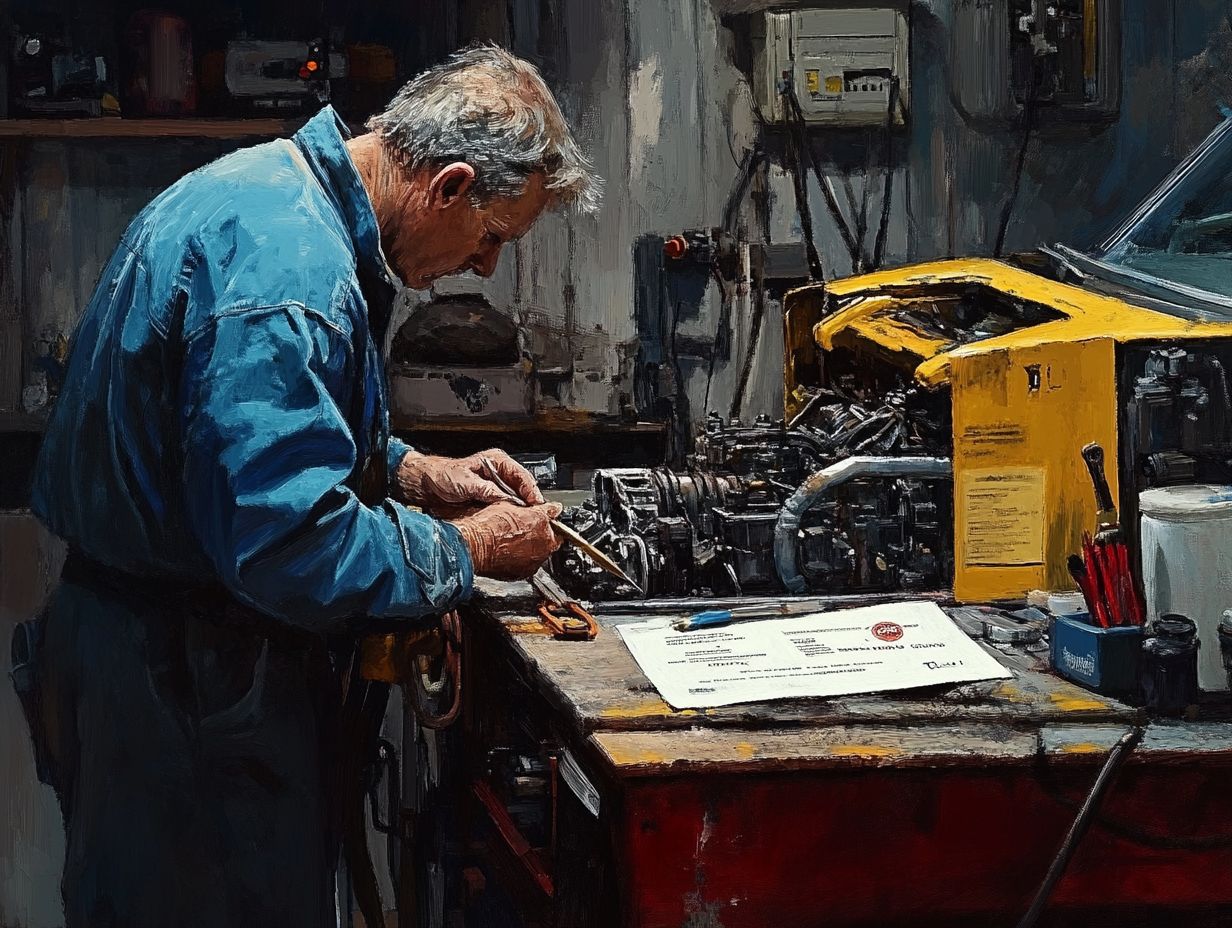
Implementing effective maintenance tips and best practices is crucial for ensuring your equipment remains reliable and complies with warranty agreements.
By establishing regular service intervals, you can significantly extend your equipment’s lifespan and avoid unexpected breakdowns. Utilizing appropriate maintenance tools and techniques optimizes performance and simplifies routine tasks. Keeping accurate documentation of all maintenance activities serves as a valuable reference point, allowing for better planning and timely interventions.
This proactive approach to maintenance enhances the overall durability of your equipment while minimizing repair costs. Ultimately, this leads to a more efficient and cost-effective operation.
The Role of Maintenance in Extending Warranties
The role of maintenance in extending warranties is essential. Consistent maintenance activities ensure compliance with warranty requirements and enhance the overall lifespan of your equipment.
By sticking to recommended service intervals and executing scheduled maintenance tasks, you can keep your warranty active and protect your investment for the long term.
How Proper Maintenance Can Prolong Warranty Coverage
Proper maintenance directly impacts the length of your warranty coverage. This happens by ensuring you meet the requirements of your warranty terms.
Regular maintenance means tracking schedules and conducting regular checks. This significantly reduces the risk of having your warranty claims denied. By keeping your equipment in prime condition, you demonstrate a commitment to optimal performance, encouraging manufacturers to extend their warranties.
These benefits lead to reduced downtime, lower repair costs, and enhanced equipment reliability. This creates a win-win scenario for you. In essence, adopting an active maintenance routine builds trust between you and the manufacturers, fostering a cooperative relationship that often leads to more favorable warranty terms.
Frequently Asked Questions
What is the role of maintenance in warranties?
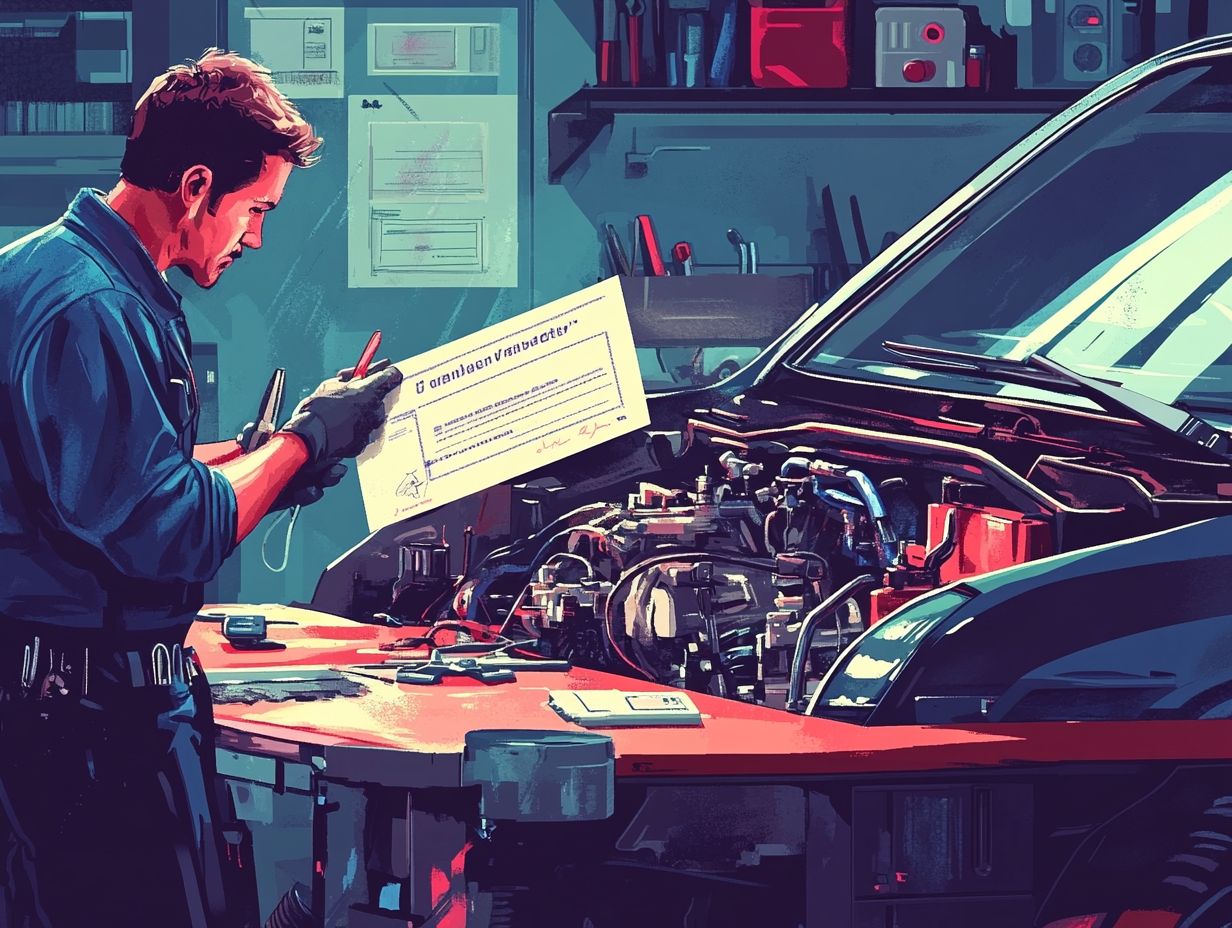
Maintenance plays a crucial role in warranties as it ensures that the product is used and cared for properly. This reduces the risk of potential damages or malfunctions.
Why is regular maintenance important for warranties?
Regular maintenance not only helps keep the product in good condition but also fulfills the warranty requirements set by the manufacturer. Failure to follow maintenance procedures may result in voiding the warranty.
Can I perform maintenance on my own to keep my warranty valid?
It depends on the specific terms and conditions set by the manufacturer. Some warranties require professional maintenance while others allow for self-maintenance. It is important to read and understand the warranty carefully before attempting any maintenance on your own.
What happens if I fail to follow the maintenance requirements stated in the warranty?
If you fail to follow the maintenance requirements, the warranty may become void. This means you will not be able to make any claims or receive any coverage for damages or malfunctions that may occur.
Can I purchase a warranty without any maintenance requirements?
Some warranties may have a maintenance-free option, but it is important to note that regular maintenance can help prolong the life of the product and prevent potential issues. Following maintenance guidelines is a smart move to keep your product running smoothly!
Is maintenance covered under the warranty?
In most cases, maintenance is not covered under the warranty. However, if a malfunction or damage occurs due to improper maintenance, the warranty may not cover the repair or replacement costs. It is crucial to keep up with maintenance to avoid any potential issues.




